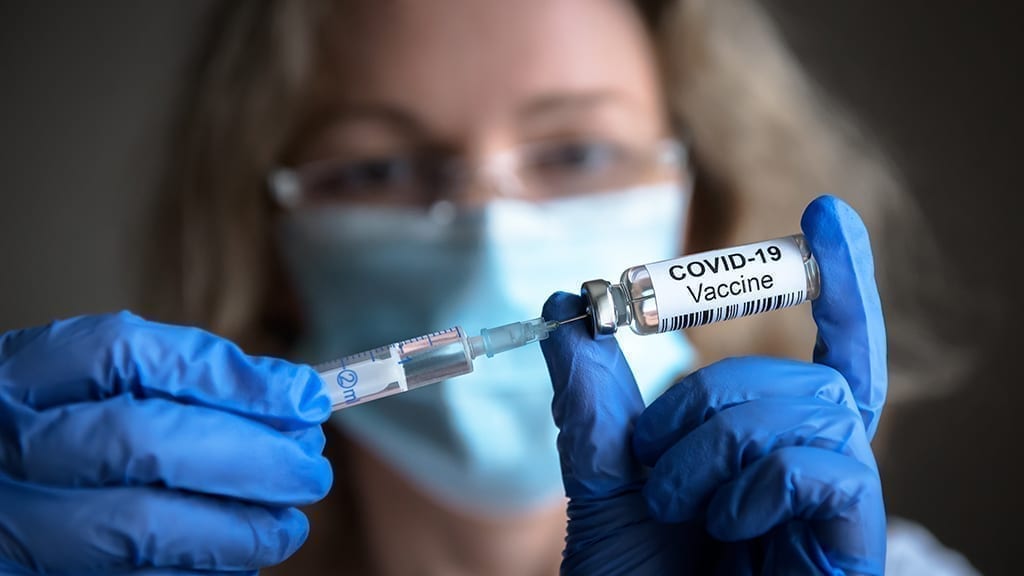
As vaccine availability and the lifting of restrictions enables a return to more normalcy in the workplace, small business owners have a new set of decisions to make.
Should I, or can I, require all employees to be vaccinated? If I don’t require it, how can I encourage it? What kinds of safety policies and procedures still make sense as COVID-related restrictions are lifted or modified?
Top of mind for many employers is to understand the options around any sort of vaccine mandate or incentive program. “Most employers are finding value in having a vaccinated workforce and either requiring or encouraging employees to be vaccinated,” says Jessica Summer, strategic policy director for the Small Business Legislative Council, an independent coalition of trade and professional associations representing small business
That said, a vaccine mandate — making full vaccination a requirement for returning to the workplace — is a strategy that’s fraught with complications, Summers notes. For industries that are having a hard time finding qualified labor, a vaccine mandate could make the job even tougher.
Vaccine Incentives
“It’s entirely up to each business to decide if you want to have any involvement at all in vaccine policy,” Summers notes. At a minimum, however, most small-business employers will try to encourage employees to become vaccinated, for everyone’s safety and convenience.
Education is the first step. The Centers for Disease Control and Prevention (CDC) offers posters and tool kits to help employers educate everyone in the workplace. Some owners and managers have made a point of recording and sharing their own positive experiences with getting vaccinated. But the CDC also recommends appointing a particular employee, or more than one, as “vaccine ambassadors,” so that the message comes from peers and not just from the top down.
One big incentive is to allow employees to take paid time to get vaccinated. A tax credit enacted as part of the Family First Coronavirus Relief Act (FFCRA) can fully offset the cost of giving employees time off to get inoculated and to recover from any side effects.
Other incentives, such as cash gifts or goods or benefits as a reward for getting vaccinated, are trickier. When any kind of wellness-related incentive has the potential to benefit some employees and not others — which could well be the case with vaccination — you risk charges of discrimination. As of now, said Summers, the EEOC has not provided specific guidance on this: “A modest gift card might be OK,” she advises, “but I would recommend against anything too grand.”
COVID-Related Liability Issues
As employees return to work, employers need to be aware of the potential for liability issues related to COVID. Some states have already enacted laws intended to protect employers from liability if a visitor or employee becomes infected in the workplace.
Any case concerning an employee who comes down with COVID is likely to involve workers’ compensation insurance. Often, however, it might be difficult to establish whether the employee got COVID in the workplace. Some cases are currently working their way through the courts. “Certainly, be careful of having employees in your workspace who are not covered by workers’ comp,” says Summers. “This is still important.”
Any liability protection offered by state law would apply, of course, only to businesses that are complying fully with CDC regulations. “Just because we have a more vaccinated population doesn’t relieve employers of responsibility for workplace safety rules,” Summers emphasizes.
President Biden has requested OSHA to come up with COVID-specific workplace safety rules. Proposed rules were sent to the Office of Budget and Management the last week of April; they could be made public as early as the week after Mother’s Day. Summers’ guess is that OSHA’s rules will be less detailed than any instituted on the state level and will likely stick with CDC guidance. They will, however, be emergency rules that go into effect immediately.
Some 14 states already have comprehensive workplace safety rules relating specifically to COVID. “A number of these requirements are getting overlooked, because there is so much else going on,” Summers noted, but employers should nonetheless be aware of them. Go to the National Employment Law Project for information on regulations in your state.
Other COVID-related safety concerns include the physical structure of the workplace. Any indoor space that brings people into close physical contact could be implicated: narrow hallways, a crowded break room or work area. Protective equipment such as face masks may still be required. “Make sure you don’t get ahead of the CDC, which has been routinely updated requirements for vaccinated people,” Summers advises, adding a reminder not to put into place any policy that would require an employee to reveal their vaccination status.
Bruce Wright is a contributing writer to Floral Management.

